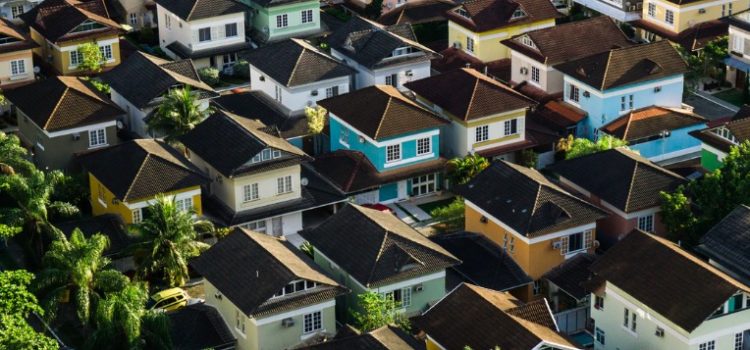
This is a free excerpt from one of Shortform’s Articles. We give you all the important information you need to know about current events and more.
Don't miss out on the whole story. Sign up for a free trial here .
Is the housing market crashing or is it normalizing? Why do experts offer varied viewpoints on this subject?
As the U.S. emerges from the pandemic-fueled housing boom—with high mortgage rates, a potential recession, and now the collapse of Silicon Valley Bank—many are wondering if the housing market is crashing again. As experts offer differing opinions, it can be difficult to determine the market’s future.
Read on to discover experts’ viewpoints on the housing market and whether it’s crashing or normalizing.
The U.S. Housing Market: Crashing or Normalizing?
As the U.S. emerges from the pandemic-fueled housing boom—and with high mortgage rates, a potential recession, and the collapse of Silicon Valley Bank (SVB) as a backdrop—Americans are again asking: Is the housing market crashing? This article will examine experts’ varied viewpoints on this subject.
Background
Last year, the Federal Reserve increased interest rates to slow the economy and tame record-breaking inflation, causing mortgage rates to surge: The average 30-year fixed rate mortgage doubled from 3% to 7% between January and October.
In recent weeks, some experts have said that the U.S. housing market is finding its equilibrium, with half the country seeing home prices drop, bidding wars occurring less frequently, and inventory easing. But not everyone thinks the market’s future looks bright.
The Housing Market Is in Trouble
Some experts say that tumbling home prices, climbing mortgage rates, and SVB’s recent collapse are major reasons why the housing market is crashing.
- In February, Dallas Federal Reserve economists said that a whopping 19.5% correction is necessary to return the market to a healthy baseline.
- Goldman Sachs predicted that U.S. home prices would fall 6.1% in 2023—and double that in some cities. When home values drop quickly, homeowners risk losing money if they sell before the market stabilizes, and they’re at greater risk of foreclosure.
- Real estate experts recently warned that if SVB’s collapse portends a 2023 recession, housing market conditions will worsen, and the housing market crashing isn’t out of the question. A recession could now be deeper and last longer than previously anticipated, increasing the likelihood of Americans losing income or jobs and triggering problems in the housing market.
- SVB’s collapse could exacerbate existing housing market challenges in tech-heavy hubs. Even before SVB’s fall, steadily rising interest rates had raised tech centers’ housing prices beyond average buyers’ reach. But a broader tech downturn would likely cool the housing market and lead home prices to drop in these areas.
The Housing Market Is Looking Up
In contrast to those who say the housing market is crashing, other real estate experts argue that SVB’s collapse could actually be good for the housing market:
- Lower mortgage rates are likely on the horizon—sooner than previously predicted—as the housing market enters spring sales season. The Federal Reserve is expected to increase interest rates less aggressively than it had planned prior to SVB’s collapse—by just 0.25%—in an effort to calm investors’ fears about a potential domino effect in the banking sector.
- Lower mortgage rates will increase affordability and bring homebuyers into the market more quickly.
They maintain that moderate market correction forecasts made earlier this month still hold true, and that the housing market crashing remains an unlikely outcome of all this for the following reasons:
- Falling home prices may drop, but not as steeply as during the Great Recession. Experts expect single-digit price declines in the housing market this year—likely of around 5%.
- Housing inventory is low, and demand for homes high, making an imminent price crash unlikely.
- Construction slowed after 2008, limiting stock.
- A strong labor market and demographic trends brought more buyers into the housing market in recent years, fueling demand.
- In 2008, the U.S. had an oversupply of roughly four million homes. Today that number is less than a million.
- Lending standards remain strict. In 2007, nearly anyone could get a mortgage. But lenders have maintained more rigorous qualification standards imposed since then.
- U.S. homeowners are better positioned financially today than in 2008. Many homeowners now have stronger credit scores, more equity, and a fixed mortgage rate below 5%—making a repeat of the 2008 foreclosure crisis (which dampened home prices) unlikely.

Want to fast-track your learning? With Shortform, you’ll gain insights you won't find anywhere else .
Here's what you’ll get when you sign up for Shortform :
- Complicated ideas explained in simple and concise ways
- Smart analysis that connects what you’re reading to other key concepts
- Writing with zero fluff because we know how important your time is






